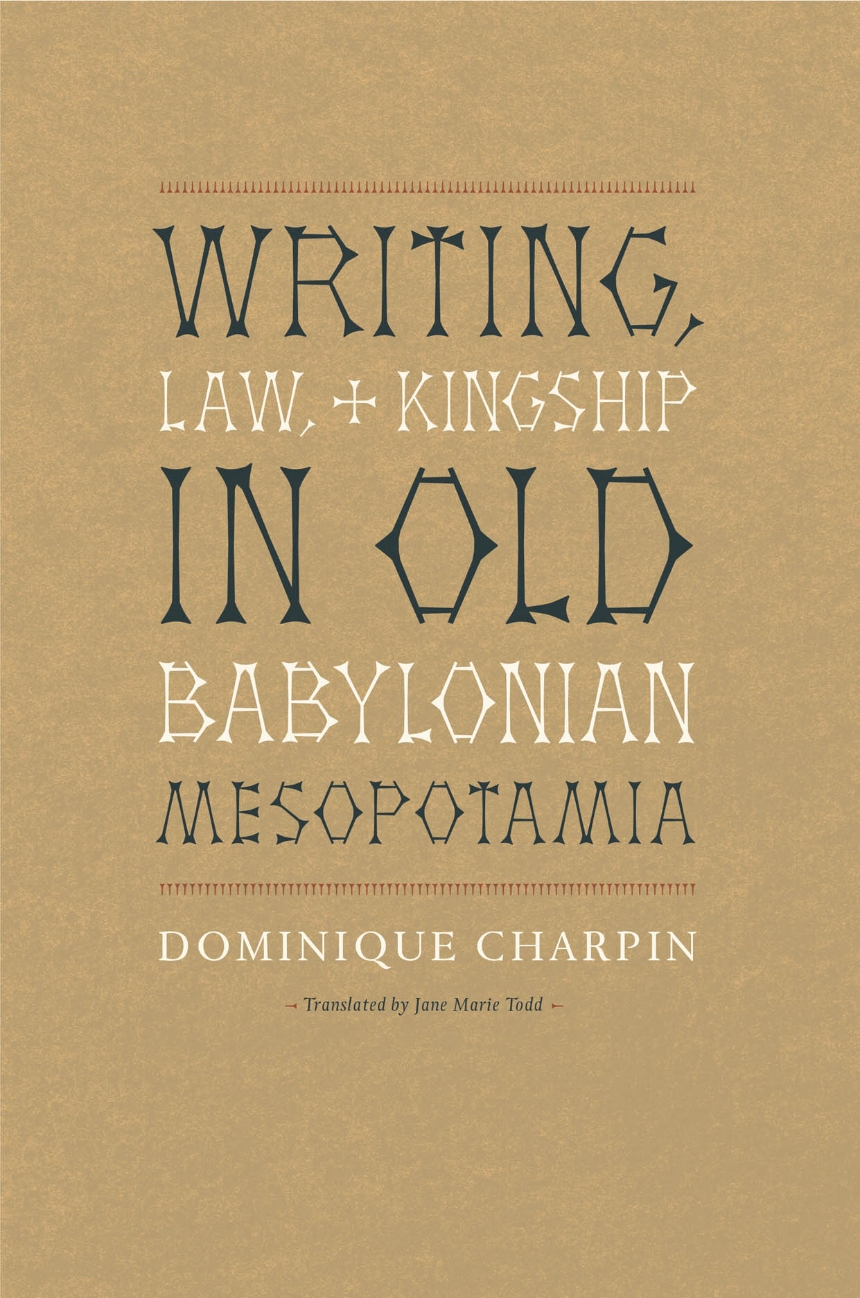Writing, Law, and Kingship in Old Babylonian Mesopotamia
Ancient Mesopotamia, the fertile crescent between the Tigris and Euphrates rivers in what is now western Iraq and eastern Syria, is considered to be the cradle of civilization—home of the Babylonian and Assyrian empires, as well as the great Code of Hammurabi. The Code was only part of a rich juridical culture from 2200–1600 BCE that saw the invention of writing and the development of its relationship to law, among other remarkable firsts.
Though ancient history offers inexhaustible riches, Dominique Charpin focuses here on the legal systems of Old Babylonian Mesopotamia and offers considerable insight into how writing and the law evolved together to forge the principles of authority, precedent, and documentation that dominate us to this day. As legal codes throughout the region evolved through advances in cuneiform writing, kings and governments were able to stabilize their control over distant realms and impose a common language—which gave rise to complex social systems overseen by magistrates, judges, and scribes that eventually became the vast empires of history books. Sure to attract any reader with an interest in the ancient Near East, as well as rhetoric, legal history, and classical studies, this book is an innovative account of the intertwined histories of law and language.
200 pages | 6 x 9 | © 2010
History: Ancient and Classical History
Language and Linguistics: Language History and Language Universals
Law and Legal Studies: Legal History
Reviews
Table of Contents
Acknowledgments
List of Abbreviations
Introduction. The Historian’s Task and Sources
1. Reading and Writing in Mesopotamia: The Business of Specialists?
2. Outline for a Diplomatics of Mesopotamian Documents
3. Old Babylonian Law: Gesture, Speech, and Writing
4. The Transfer of Property Deeds and the Constitution of Family Archives
5. The Status of the Code of Hammurabi
6. The "Restoration" Edicts of the Babylonian Kings and Their Application
7. Hammurabi and International Law
8. Controlling Cross-Border Traffic
Conclusion. A Civilization with Two Faces
Notes
Index
